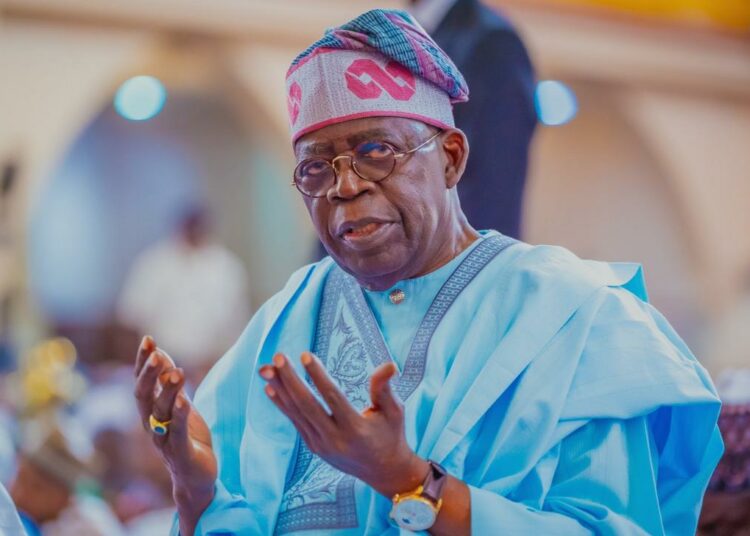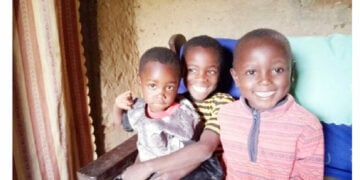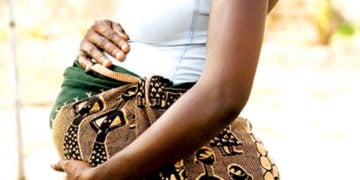It’s that season again – the season of white garments, rams on ropes, and politicians reminding us to be “our brother’s keeper.” Eid-el-Kabir, or as the politicians now call it, “a moment of deep reflection.” And boy, have they reflected – in press statements, prayer grounds, and Instagram captions.
President Tinubu, in his Sallah message, assured us that Nigeria is on the path to renewed prosperity. That the reforms are working. That the darkest hours are behind us. That, essentially, our pain is not in vain.
Now, I’m not here to throw cold water on presidential optimism. After all, hope is a good thing. But let’s be honest: if speeches could fix the economy, we would’ve overtaken Switzerland by now. The reality on the streets still doesn’t match the optimism at the top. Ask the man who spent his last salary on foodstuff that now costs twice as much. Ask the woman selling tomatoes under the sun, calculating how to afford fuel for her generating set at night.
Let’s not pretend the President doesn’t know this. He acknowledged the hardship in his message. He said the reforms were painful but necessary. That’s the go-to phrase now – painful but necessary. Like an injection from a reluctant nurse.
But here’s where I have a problem: if you keep telling people the worst is over, they expect to see signs. Not PowerPoint slides or rosy economic forecasts. They want fuel they can afford, food they can buy, schools that teach, and roads that don’t swallow cars. They want to feel the change in their stomachs, not just in the president’s speechwriter’s notes.
Vice President Ibrahim Shettima was also in his element – waxing philosophical at the Eid ground, telling Nigerians we’ve “crossed the Rubicon.” Which Rubicon, sir? Because it feels like we’re still at the Niger Bridge, stuck in traffic, with our tyres in potholes and our wallets in ICU.
Don’t get me wrong – I like the VP’s turn of phrase. “Life is a marathon,” he said, “and as individuals, we can run faster, but we wear out easily.” True. Nigerians have been running this marathon barefoot, uphill, and backwards. Some are not just worn out – they’re worn thin.
Our leaders are asking us to sacrifice more. As if Nigerians haven’t sacrificed enough already. From fuel subsidy removal to naira devaluation, we’ve been sacrificing since last Sallah. The masses are fasting for good governance, and now they’re being told to offer patience as another form of zakat.
Meanwhile, it’s hard to find any real sacrifice on the part of the government. Jumbo salaries remain untouched. Convoys still run like party parades. Budget padding is alive and well. Yet the average Nigerian is told to endure and endure some more – all in the name of reforms.
Even the First Lady joined the choir of reflection. Senator Remi Tinubu, in her message, urged Nigerians to show compassion, remember their neighbours, and pray for peace. Noble words. But compassion is a two-way street. How do you ask people to care for their neighbours when they can barely care for themselves?
There’s something deeply wrong when the people are told to “pray for the country” by the same leaders who were elected to fix it. Don’t get me wrong – prayer is important. But governance is not a prayer point. If God needed to run Nigeria, we wouldn’t need INEC.
To be fair, I’m not saying the government hasn’t made moves. The problem is the disconnect between the moves and the mood of the people. When you talk of reforms “gaining traction,” but people are still trekking to work, they wonder whether the traction is only happening in Abuja.
Let’s not also forget the President’s sympathy for flood victims in Niger State. He mentioned the Mokwa tragedy – lives lost, homes destroyed. Touching gesture. But we need more than condolences. We need a system that prevents these disasters, not just tweets after the fact. Flooding is not new. Climate change is not a rumour. Why does every year still catch us by surprise?
There’s also the matter of national unity – that overused, under-delivered slogan. Every Eid, we hear that “Nigeria must unite,” that “we are stronger together,” that “tribe and tongue may differ, in brotherhood we stand.” Yet political appointments, economic policies, and social realities say otherwise. Try being from the wrong tribe at the wrong time and see how far “unity” takes you.
Still, in all the flowery speeches and staged photo ops, there was one consistent message: sacrifice.
But here’s a question I want to ask – who is sacrificing for who? Is it the leaders sacrificing luxury to show solidarity with the people? Or is it the people sacrificing comfort to fund a bloated political elite?
A government that preaches sacrifice must first practice it. Slash your budget. Cut your convoys. Make lawmakers earn their pay. Let’s see top officials fly commercial for once. Then maybe – just maybe – the call to sacrifice won’t sound like mockery.
Until then, Eid will remain another photo op. Another press release. Another festival where the masses wear second-hand white and the elite wear agbadas (flowing gown) stitched in Milan.
But let me not sound like a total pessimist. Nigeria is still a land of resilience. The people still smile, still pray, still hope. That’s something. The sacrifice of Prophet Ibrahim – which this season represents – is not lost on us. But remember, even Prophet Ibrahim had a ram. Nigerians have been left with only promises.
In closing, I’ll borrow a line from President Tinubu’s message: “May the joy and blessings of Eid-ul-Adha multiply in our lives.” Amen. But as we wait for the blessings, let’s also wait for results. Let our leaders match words with action. Let sacrifice not be a one-way street. And maybe next Sallah, we’ll have less to reflect on, and more to celebrate.
Eid Mubarak.





